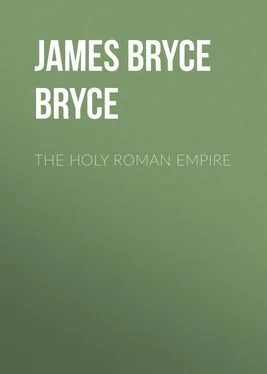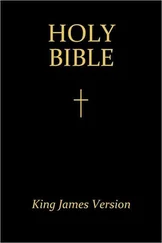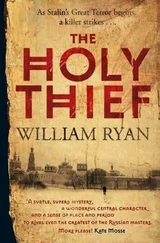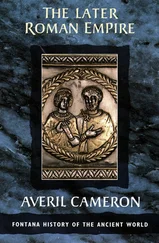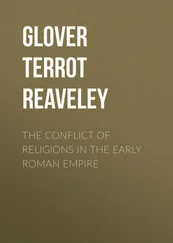James Bryce - The Holy Roman Empire
Здесь есть возможность читать онлайн «James Bryce - The Holy Roman Empire» — ознакомительный отрывок электронной книги совершенно бесплатно, а после прочтения отрывка купить полную версию. В некоторых случаях можно слушать аудио, скачать через торрент в формате fb2 и присутствует краткое содержание. Жанр: foreign_antique, foreign_prose, Историческая проза, на английском языке. Описание произведения, (предисловие) а так же отзывы посетителей доступны на портале библиотеки ЛибКат.
- Название:The Holy Roman Empire
- Автор:
- Жанр:
- Год:неизвестен
- ISBN:нет данных
- Рейтинг книги:4 / 5. Голосов: 1
-
Избранное:Добавить в избранное
- Отзывы:
-
Ваша оценка:
- 80
- 1
- 2
- 3
- 4
- 5
The Holy Roman Empire: краткое содержание, описание и аннотация
Предлагаем к чтению аннотацию, описание, краткое содержание или предисловие (зависит от того, что написал сам автор книги «The Holy Roman Empire»). Если вы не нашли необходимую информацию о книге — напишите в комментариях, мы постараемся отыскать её.
The Holy Roman Empire — читать онлайн ознакомительный отрывок
Ниже представлен текст книги, разбитый по страницам. Система сохранения места последней прочитанной страницы, позволяет с удобством читать онлайн бесплатно книгу «The Holy Roman Empire», без необходимости каждый раз заново искать на чём Вы остановились. Поставьте закладку, и сможете в любой момент перейти на страницу, на которой закончили чтение.
Интервал:
Закладка:
There were especially two ideas whereon it rested, and from which it obtained a peculiar strength and a peculiar direction. The one was the belief that as the dominion of Rome was universal, so must it be eternal. Nothing like it had been seen before. The empire of Alexander had lasted a short lifetime; and within its wide compass were included many arid wastes, and many tracts where none but the roving savage had ever set foot. That of the Italian city had for fourteen generations embraced all the most wealthy and populous regions of the civilized world, and had laid the foundations of its power so deep that they seemed destined to last for ever. If Rome moved slowly for a time, her foot was always planted firmly: the ease and swiftness of her later conquests proved the solidity of the earlier; and to her, more justly than to his own city, might the boast of the Athenian historian be applied: that she advanced farthest in prosperity, and in adversity drew back the least. From the end of the republican period her poets, her orators, her jurists, ceased not to repeat the claim of world-dominion, and confidently predict its eternity 16 16 See, among other passages, Varro, De lingua Latina , iv. 34; Cic., Pro Domo , 33; and in the Corpus Iuris Civilis , Dig. i. 5, 17; l. 1, 33; xiv. 2, 9; quoted by Ægidi, Der Fürstenrath nach dem Luneviller Frieden . The phrase 'urbs æterna' appears in a novel issued by Valentinian III. Tertullian speaks of Rome as 'civitas sacrosancta.'
. The proud belief of his countrymen which Virgil had expressed —
'His ego nec metas rerum, nec tempora pono:
Imperium sine fine dedi' —
was shared by the early Christians when they prayed for the persecuting power whose fall would bring Antichrist upon earth. Lactantius writes: 'When Rome the head of the world shall have fallen, who can doubt that the end is come of human things, aye, of the earth itself. She, she alone is the state by which all things are upheld even until now; wherefore let us make prayers and supplications to the God of heaven, if indeed his decrees and his purposes can be delayed, that that hateful tyrant come not sooner than we look for, he for whom are reserved fearful deeds, who shall pluck out that eye in whose extinction the world itself shall perish 17 17 Lact. Divin. Instit. vii. 25: 'Etiam res ipsa declarat lapsum ruinamque rerum brevi fore: nisi quod incolumi urbe Roma nihil istiusmodi videtur esse metuendum. At vero cum caput illud orbis occident, et ῥύμη esse cœperit quod Sibyllæ fore aiunt, quis dubitet venisse iam finem rebus humanis, orbique terrarum? Illa, illa est civitas quæ adhuc sustentat omnia, precandusque nobis et adorandus est Deus cœli si tamen statuta eius et placita differri possunt, ne citius quam putemus tyrannus ille abominabilis veniat qui tantum facinus moliatur, ac lumen illud effodiat cuius interitu mundus ipse lapsurus est.' Cf. Tertull. Apolog. cap. xxxii: 'Est et alia maior necessitas nobis orandi pro imperatoribus, etiam pro omni statu imperii rebusque Romanis, qui vim maximam universo orbi imminentem ipsamque clausulam sæculi acerbitates horrendas comminantem Romani imperii commeatu scimus retardari.' Also the same writer, Ad Scapulam , cap. ii: 'Christianus sciens imperatorem a Deo suo constitui, necesse est ut ipsum diligat et revereatur et honoret et salvum velit cum toto Romano imperio quousque sæculum stabit: tamdiu enim stabit.' So too the author – now usually supposed to be Hilary the Deacon – of the Commentary on the Pauline Epistles ascribed to S. Ambrose: 'Non prius veniet Dominus quam regni Romani defectio fiat, et appareat antichristus qui interficiet sanctos, reddita Romanis libertate, sub suo tamen nomine.' – Ad II Thess. ii. 4, 7.
.' With the triumph of Christianity this belief had found a new basis. For as the Empire had decayed, the Church had grown stronger; and now while the one, trembling at the approach of the destroyer, saw province after province torn away, the other, rising in stately youth, prepared to fill her place and govern in her name, and in doing so, to adopt and sanctify and propagate anew the notion of a universal and unending state.
Sanctity of the imperial name.
The second chief element in this conception was the association of such a state with one irresponsible governor, the Emperor. The hatred to the name of King, which their earliest political struggles had left in the Romans, by obliging their ruler to take a new and strange title, marked him off from all the other sovereigns of the world. To the provincials especially he became an awful impersonation of the great machine of government which moved above and around them. It was not merely that he was, like a modern king, the centre of power and the dispenser of honour: his pre-eminence, broken by no comparison with other princes, by the ascending ranks of no aristocracy, had in it something almost supernatural. The right of legislation had become vested in him alone: the decrees of the people, and resolutions of the senate, and edicts of the magistrates were, during the last three centuries, replaced by imperial constitutions; his domestic council, the consistory, was the supreme court of appeal; his interposition, like that of some terrestrial Providence, was invoked, and legally provided so to be, to reverse or overleap the ordinary rules of law 18 18 For example, by the 'restitutio natalium,' and the 'adrogatio per rescriptum principis,' or, as it is expressed, 'per sacrum oraculum.'
. From the time of Julius and Augustus his person had been hallowed by the office of chief pontiff 19 19 Even the Christian Emperors took the title of Pontifex Maximus, till Gratian refused it: ἀθέμιστον εἶναι Χριστιάνῳ τὸ σχῆμα νομίσας. – Zosimus, lib. iv. cap. 36.
and the tribunician power; to swear by his head was considered the most solemn of all oaths 20 20 'Maiore formidine et callidiore timiditate Cæsarem observatis quam ipsum ex Olympo Iovem, et merito, si sciatis… Citius denique apud vos per omnes Deos quam per unum genium Cæsaris peieratur.' – Tertull. Apolog. c. xxviii. Cf. Zos. v. 51: εἰ μὲν γὰρ πρὸς τὸν θεὸν τετυχήκει διδόμενος ὅρκος, ἦν ἂν ὡς εἰκὸς παριδεῖν ἐνδίδοντας τῇ τοῦ θεοῦ φιλανθρωπίᾳ τὴν ἐπὶ τῇ ἀσεβείᾳ συγγνώμην. ἐπεὶ δὲ κατὰ τὴν τοῦ βασιλέως ὀμωμόκεσαν κεφαλῆς, οὐκ εἶναι θεμιτὸν αὐτοῖς εἰς τὸν τοσοῦτον ὅρκον ἐξαμαρτεῖν.
; his effigy was sacred 21 21 Tac. Ann. i. 73; iii. 38, etc.
, even on a coin; to him or to his Genius temples were erected and divine honours paid while he lived 22 22 It is curious that this should have begun in the first years of the Empire. See, among other passages that might be cited from the Augustan poets, Virg. Georg. i. 42; iv. 462; Hor. Od. iii. 3, 11; Ovid, Epp. ex Ponto , iv. 9. 105.
; and when, as it was expressed, he ceased to be among men, the title of Divus was accorded to him, after a solemn consecration 23 23 Hence Vespasian's dying jest, 'Ut puto, deus fio.'
. In the confused multiplicity of mythologies, the worship of the Emperor was the only worship common to the whole Roman world, and was therefore that usually proposed as a test to the Christians on their trial. Under the new religion the form of adoration vanished, the sentiment of reverence remained: the right to control Church as well as State, admitted at Nicæa, and habitually exercised by the sovereigns of Constantinople, made the Emperor hardly less essential to the new conception of a world-wide Christian monarchy than he had been to the military despotism of old. These considerations explain why the men of the fifth century, clinging to preconceived ideas, refused to believe in that dissolution of the Empire which they saw with their own eyes. Because it could not die, it lived. And there was in the slowness of the change and its external aspect, as well as in the fortunes of the capital, something to favour the illusion. The Roman name was shared by every subject; the Roman city was no longer the seat of government, nor did her capture extinguish the imperial power, for the maxim was now accepted, Where the Emperor is, there is Rome 24 24 ὅπου ἂν ὁ βασιλεὺς ᾖ, ἐκεῖ ἡ Ῥώμη. – Herodian.
. But her continued existence, not permanently occupied by any conqueror, striking the nations with an awe which the history or the external splendours of Constantinople, Milan, or Ravenna could nowise inspire, was an ever new assertion of the endurance of the Roman race and dominion. Dishonoured and defenceless, the spell of her name was still strong enough to arrest the conqueror in the moment of triumph. The irresistible impulse that drew Alaric was one of glory or revenge, not of destruction: the Hun turned back from Aquileia with a vague fear upon him: the Ostrogoth adorned and protected his splendid prize.
Интервал:
Закладка:
Похожие книги на «The Holy Roman Empire»
Представляем Вашему вниманию похожие книги на «The Holy Roman Empire» списком для выбора. Мы отобрали схожую по названию и смыслу литературу в надежде предоставить читателям больше вариантов отыскать новые, интересные, ещё непрочитанные произведения.
Обсуждение, отзывы о книге «The Holy Roman Empire» и просто собственные мнения читателей. Оставьте ваши комментарии, напишите, что Вы думаете о произведении, его смысле или главных героях. Укажите что конкретно понравилось, а что нет, и почему Вы так считаете.
